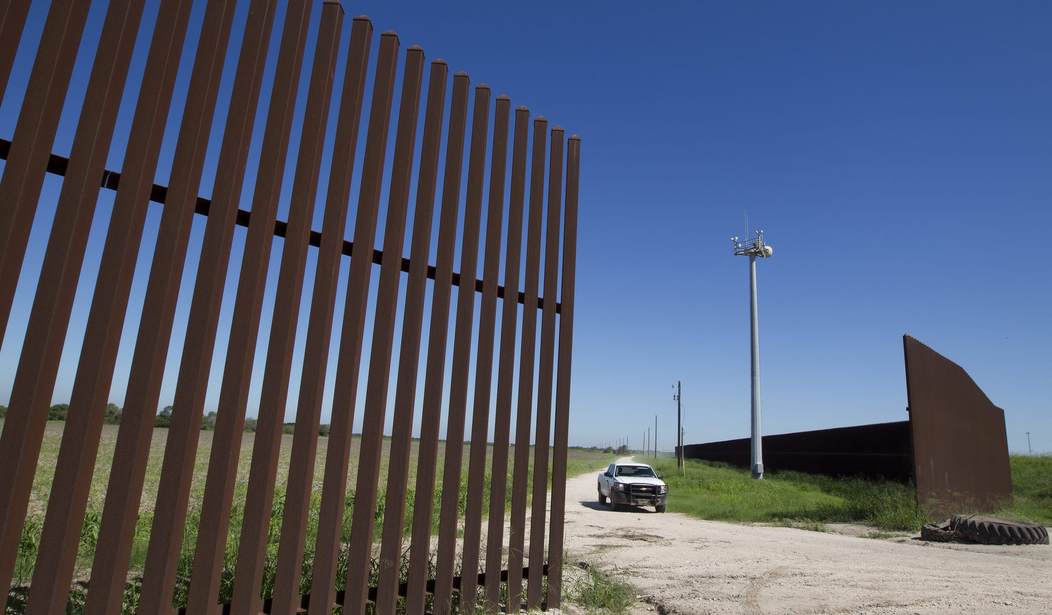Brandon Judd, president of the National Border Patrol Council, said criminal cartels recently cut a hole through the fence located on a 10-mile stretch of the border in Arizona.
Judd explained that an agent in Arizona notified him that the area was unmanned for more than two days due to a lack of manpower.
“Criminal cartels were able to go to the fence, cut a hole in the fence, drive two vehicles through that hole and escape. They were able then to put the fence back up and try to hide the cuts that they had made,” Judd said during a House Oversight and Government Reform Committee hearing. “The scariest part of those vehicles entering into the United States is we don’t know what was in those vehicles. We have no idea.”
Judd clarified later in the hearing that he misread his notes and that part of the border was actually open for a period much longer than two days.
During last week’s hearing, Rep. Mark Meadows (R-N.C.) questioned the Obama administration’s claim that the border is more secure than ever. He pointed out that the administration often touts the annual number of apprehensions at the border as proof the border is secured.
“The Government Accountability Process (GAO) has indicated DHS has no official metrics in place to measure whether our border is secure or not, and so those statements are very difficult to comprehend if there are no metrics in place,” he said.
Chairman of the Subcommittee on National Security Ron DeSantis (R-Fla.) asked Judd if the apprehensions figure is evidence that the border is secure. Pointing to the holes cut in the fence as an example, Judd said the Border Patrol does not measure the number of people who avoided apprehension and illegally crossed into the U.S.
“Because there were no agents assigned where that drive-through took place, if it wasn’t for a camera that actually saw those vehicles, we would not know those vehicles had crossed,” he said.
Judd also told the committee that the Border Patrol is fudging the apprehension data by ordering agents not to report “got-aways” if the individual’s entry point cannot be determined.
“The question posed to this watch commander was, ‘We know that they got away, where are we going to report that they got away?’ He said, ‘well if there is no entry point there were no got-aways,’” Judd said.
According to Judd, in fiscal year 2015, the U.S. Border Patrol saw a “trend” of illegal crossers who were not Latin American.
“Already in the first five months of this fiscal year, the United States Border Patrol has arrested 18 from Afghanistan, 79 from Pakistan and 619 from the People’s Republic of China. Those numbers should alarm everyone and we are seeing a similar trend from other key countries like Albania, Bangladesh and Brazil,” Judd said in his testimony.
“As someone who has been involved in border protection for over 18 years, I can unequivocally tell you the border is not secure and the situation is getting worse instead of better,” he added.
According to Steven C. McCraw, director of Texas Department of Public Safety, migrants from 35-40 countries of interest where Islamic terrorist organizations operate have been apprehended reaching the “southwest land border” each year since 9/11. These individuals were smuggled through Latin America and Mexico “at a relatively consistent annual average volume.”
McGraw said Somali terrorists from the militant group Al-Shabaab have been caught trying to enter the U.S. illegally at the southern border.
“It’s an FBI case. It was prosecuted. It’s open-source information regarding a Somalian smuggling operation out of San Antonio that would bring Somalians across and help them resettle across the U.S. and there had been a nexus determined in that investigation to terrorism. We’re mindful of that.”
Rep. Meadows said his main concern is “nefarious actors have taken advantage of our generosity” in the immigration and refugee processes.
“Gang members, cartel operators, supporters of terrorist groups can game the system and make use of ‘credible fear’ to remain here in the United States,” he said.
Jan Ting, professor of law at Temple University and a former U.S. Senate candidate, said the Obama administration should enforce current law and end its “catch and release” policy for illegal immigrants. He said the Border Patrol has statutory authority to turn people away at the border.
“What used to happen, I believe, is if people came to the border and wanted to make an asylum claim we told them, ‘fine, we’ll schedule you for an appointment, come back to the border but we’re not going to admit you,’” he said.
“It would help to have an administration that is really serious about defending the border and enforcing laws enacted by Congress.”









Join the conversation as a VIP Member